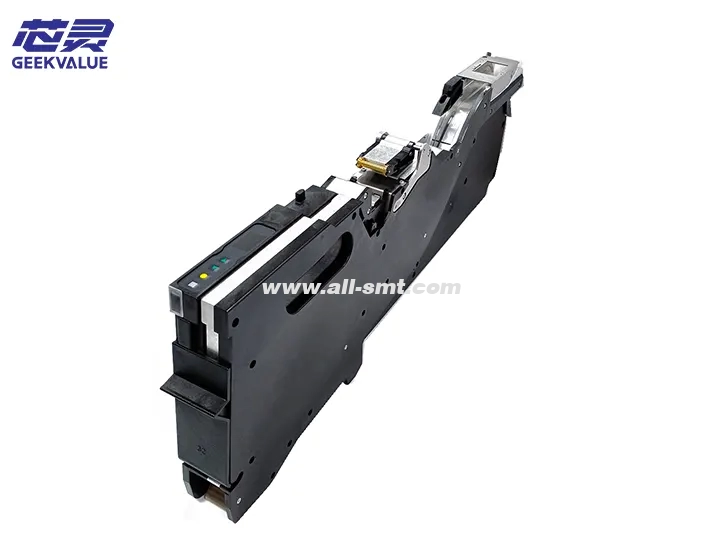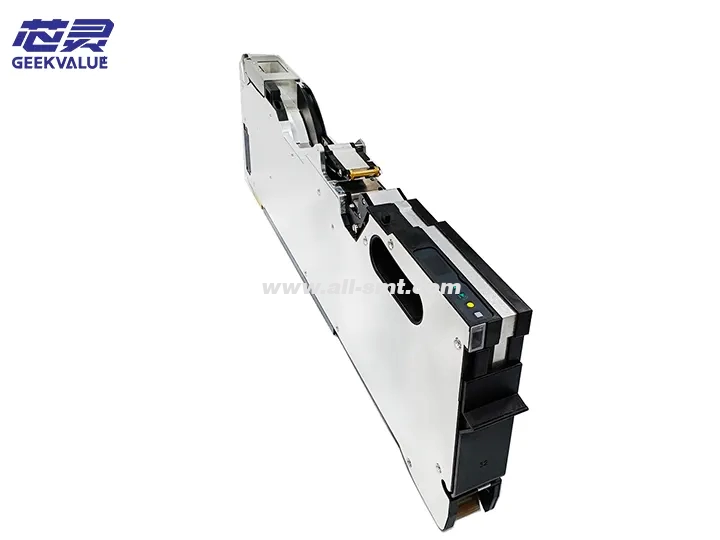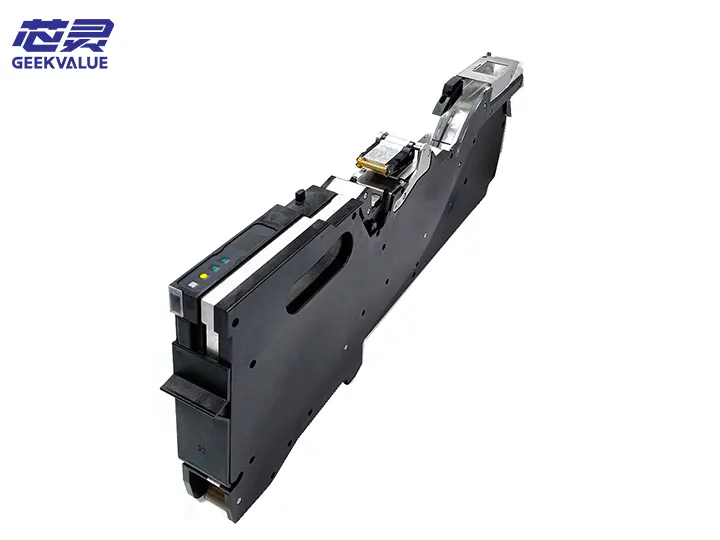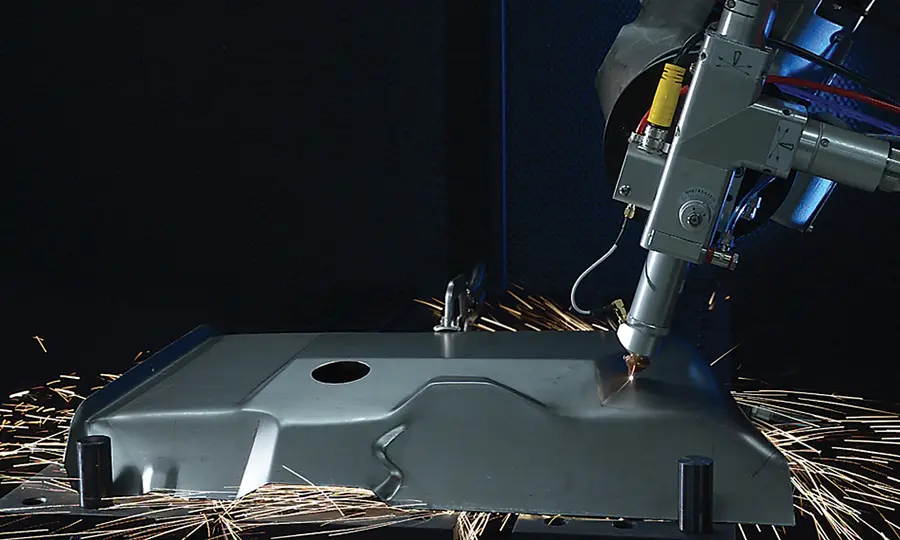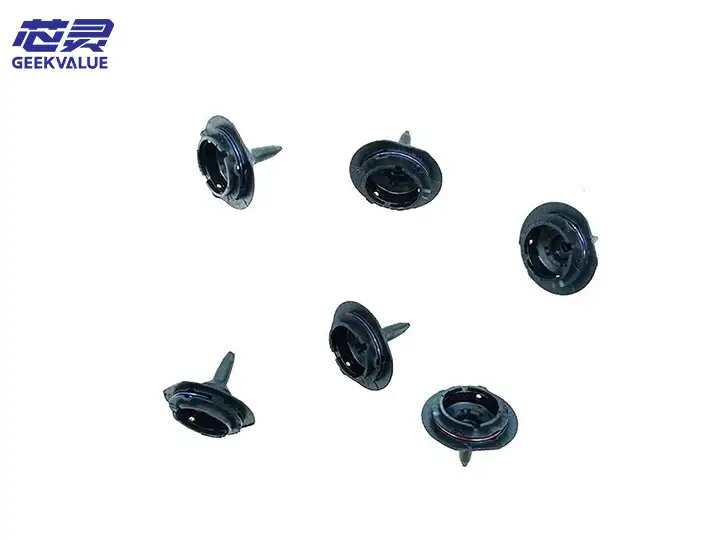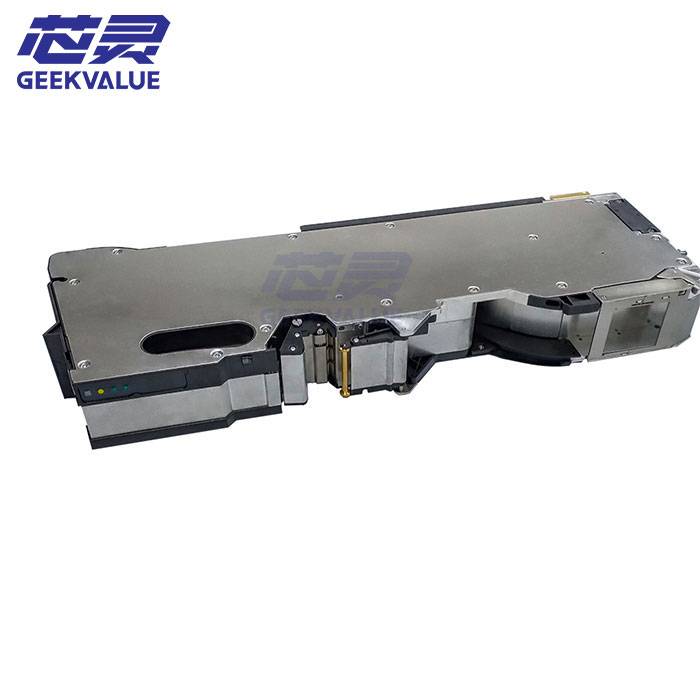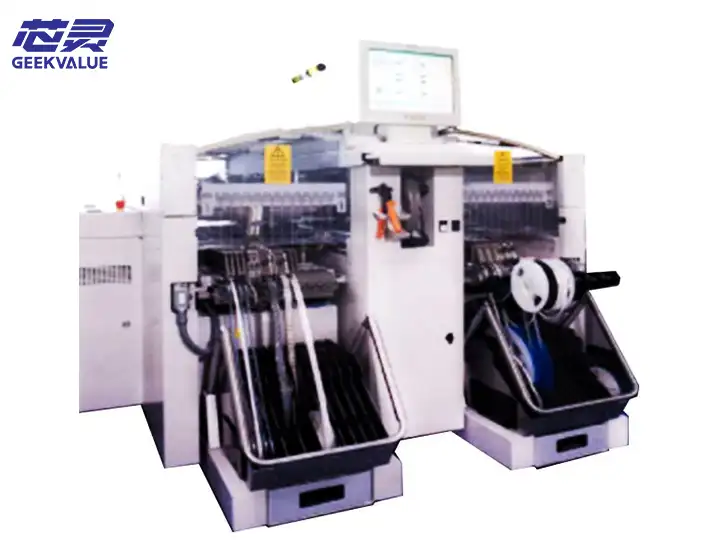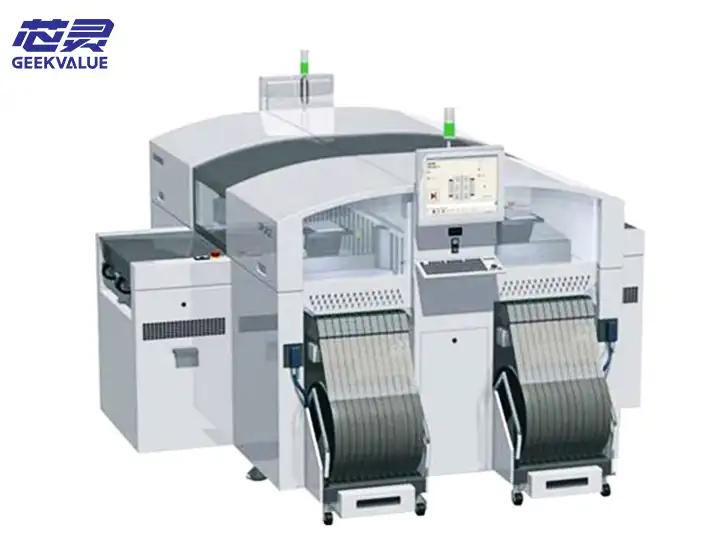Siemens SMT machine 32mm without sensor Feida 00141374 comprehensive technical analysis
I. Product overview and technical specifications
1.1 Basic parameters
Model: 00141374
Applicable strip width: 32mm (adaptable to 28-32mm)
Feeding step: 4/8/12/16mm adjustable (mechanical adjustment)
Maximum component height: 8mm
Strip thickness range: 0.2-1.5mm
Dimensions: 220mm×85mm×65mm
Weight: 1.8kg
Service life: ≥20 million feeding cycles
1.2 Applicable models
SIPLACE X series (X4i, X4s)
SIPLACE S series (SX, SX2)
SIPLACE TX series
1.3 Design features
Heavy-duty steel structure frame: Made of cold-rolled steel, the overall rigidity is increased by 40%
Dual ratchet drive system: The main/secondary ratchets work together to ensure stable conveying of large-size material strips
Modular design: The main functional components can be replaced independently
Antistatic treatment: Surface resistance <10⁶Ω, in line with IEC61340 standard
II. Mechanical structure and working principle
2.1 Core mechanical components
Feeding mechanism:
Adopting dual gear transmission system (module 0.5, pressure angle 20°)
Precision ratchet (hardness HRC58-62)
Reinforced reset spring (life 5 million times)
Guide system:
Adjustable dual guide rails (adjustment range 28-32mm)
PTFE wear-resistant bushing
Pressure device:
Segmented pressure plate design
Adjustable spring pressure (5-15N)
2.2 Working principle
Power transmission:
Mechanical power is provided by the cam mechanism of the placement machine
The drive shaft advances one step for every 15° rotation
Feeding process:
Ratchet teeth bite the material belt positioning hole
Synchronously drive the material belt to advance the set step
The pressure plate keeps the material belt stable
Reset mechanism:
Built-in torsion spring provides reset force
Reset accuracy ±0.05mm
III. Performance characteristics and technical advantages
3.1 Core performance indicators
Feeding accuracy: ±0.08mm (@23±2℃)
Maximum feeding speed: 25 times/minute
Load capacity: Can withstand 1.5kg tray weight
Temperature stability: -10℃~60℃ performance without attenuation
3.2 Unique technical advantages
Heavy-duty material handling capacity:
Specially designed feeding teeth can effectively prevent material slipping
Reinforced pressing mechanism ensures stable conveying of thick material (≤1.5mm)
Maintenance-free design:
Self-lubricating bearings (oil content ≥18%)
Dust-proof structure design (IP50 compliant)
Quick adjustment system:
Step adjustment adopts knob design (adjustment time <15 seconds)
No tools required for material width adjustment
IV. Application scenarios and production line value
4.1 Typical application components
Large-size electrolytic capacitors (diameter ≥10mm)
Power inductors/transformers
Connectors/sockets
LED modules
Heat sink components
4.2 Value of production line
Cost optimization:
Save 60% of procurement cost compared to electronic feeder
Reduced maintenance cost by 80%
Efficiency improvement:
Material change time <10 seconds
Support uninterrupted continuous production
Quality assurance:
Mechanical feeding eliminates errors caused by electronic interference
High repeatability
V. Installation and operation guide
5.1 Installation process
Mechanical docking:
Align the guide rail of the feeder base of the placement machine
Push it into the locked position (hear a "click")
Function test:
Manually test the feeding action 3-5 times
Check the straightness of the material belt
5.2 Key points of operation
Material belt loading:
Release the pressure plate first (pull the blue release lever)
Ensure that the material belt enters the guide groove straightly
Step setting:
Rotate the step selector to the corresponding scale
Test feeding 2-3 times to confirm
Tension adjustment:
Adjust through the material tray brake
The ideal tension is that the material belt is slightly stretched straight
VI. Maintenance system
6.1 Daily maintenance
Cleaning cycle:
Use air gun to clean every shift (pressure ≤ 0.2MPa)
Wipe the guide rail with anhydrous alcohol every week
Lubrication management:
Add grease every month (Kluber Isoflex LDS18 is recommended)
Lubrication points: 4 places (gear shaft, guide rail, ratchet shaft, reset mechanism)
6.2 Regular maintenance (recommended every quarter)
Comprehensive inspection:
Measure ratchet tooth wear (maximum allowable wear 0.1mm)
Test spring elasticity (free length change ≤ 5%)
Deep maintenance:
Disassemble and clean all moving parts
Replace worn bushings (if clearance > 0.3mm)
Precision calibration:
Test with standard calibration tape
The cumulative error of feeding 10 times should be ≤ 0.5mm
VII. Common fault diagnosis and treatment
7.1 Fault classification and treatment
Fault phenomenon Diagnostic steps Solution
Insufficient material belt propulsion force 1. Check ratchet wear
2. Test spring force value 1. Replace ratchet assembly
2. Adjust or replace spring
Large deviation in feeding position 1. Measure actual step
2. Check guide groove 1. Reset step
2. Correct rail parallelism
Abnormal noise 1. Listen to locate
2. Check lubrication status 1. Replace damaged bearings
2. Refill grease
Frequent jamming of material belt 1. Check material belt quality
2. Observe running track 1. Replace qualified material belt
2. Adjust pressing force
7.2 Key component replacement guide
Ratchet assembly replacement:
Remove fixing screw (T8 hexagon socket)
Be careful to keep the reset spring in position
Manual test 10 times after installation
Replacement of guide rail bushing:
Use special ejection tool
Pre-lubrication of new bushing
Check sliding resistance after installation
VIII. Technical evolution and improvement suggestions
8.1 Version iteration history
First generation (2010): basic 32mm feeder
Second generation (2015): improved guide system (current model)
Third generation (2018): optimized material process (life expectancy increased by 30%)
8.2 Recommendations for use optimization
Environmental control:
Maintain temperature at 20-26℃
Control humidity at 40-60%RH
Spare parts management:
Recommended reserve: ratchet assembly (P/N: 00141375)
Recommend replacement of key components every 20 million times
Performance upgrade:
Optional anti-static version (P/N: 00141374-ESD)
High load model (P/N: 00141374-HL)
IX. Comparison and analysis with other models
Parameters 32mm feeder 00141374 16mm feeder 00141372 8mm electronic feeder
Feeding accuracy ±0.08mm ±0.1mm ±0.02mm
Maximum speed 25 times/min 30 times/min 40 times/min
Sensing function No No Yes
Applicable components Large devices Medium devices Precision components
Maintenance cycle 6 months 3 months 1 month
X. Summary and Outlook
Siemens 32mm non-sensor feeder 00141374 has become a benchmark product in the field of large-size component placement with its heavy-duty structural design, excellent reliability and extremely low maintenance requirements. Its core value is reflected in:
Economical: procurement and maintenance costs are only 1/3 of electronic feeders
Durability: key components have a lifespan of more than 20 million times
Stability: temperature and humidity changes have little impact
Future development direction:
Intelligent transformation interface reservation
New material application (such as ceramic coating)
Quick disassembly structure optimization
Users are advised to:
Establish a preventive maintenance plan
Regularly check mechanical wear
Retain 10% of the spare capacity to cope with sudden needs
This feeder is particularly suitable for:
Automotive electronics manufacturing
Industrial power supply production
Large-size LED assembly
Power electronic equipment
Through standardized use and scientific maintenance, the equipment can ensure a stable service cycle of more than 5 years, providing a long-lasting and reliable supply guarantee for the production line.
